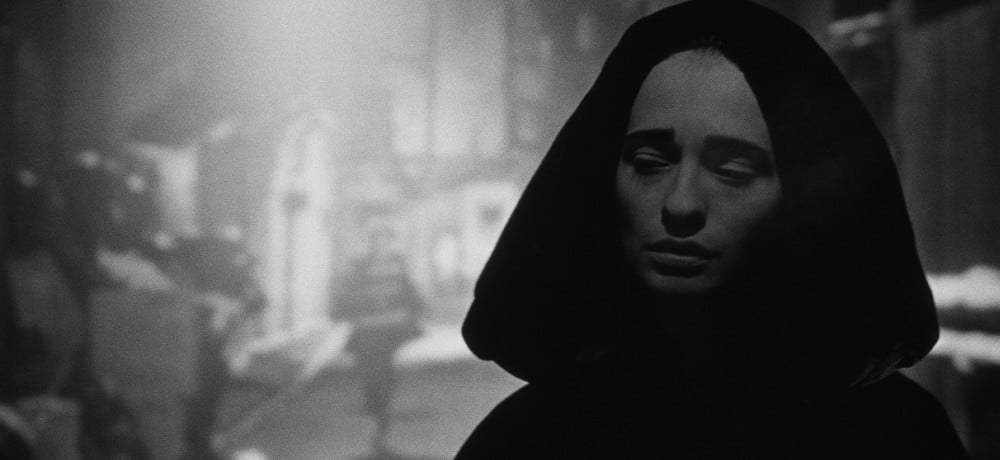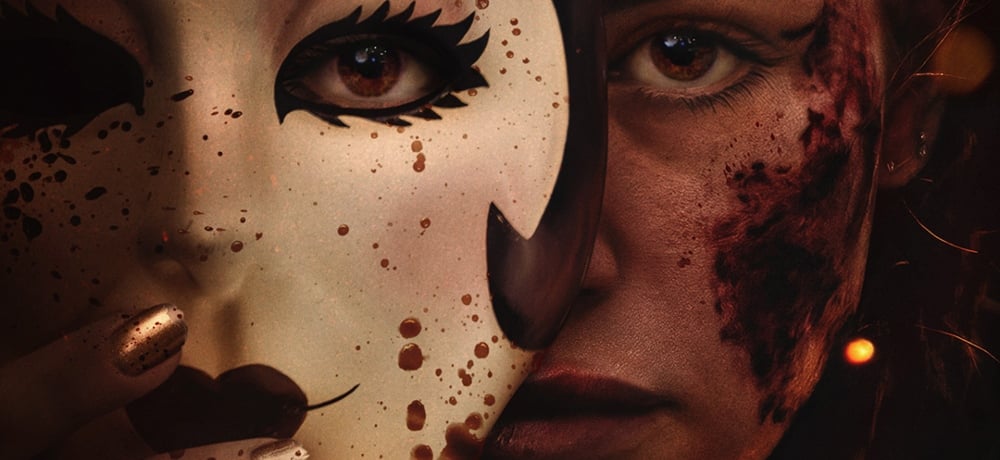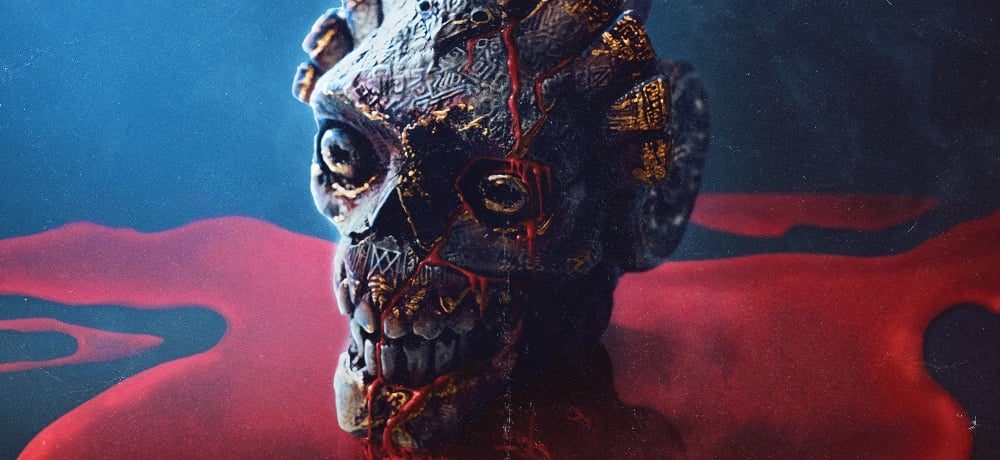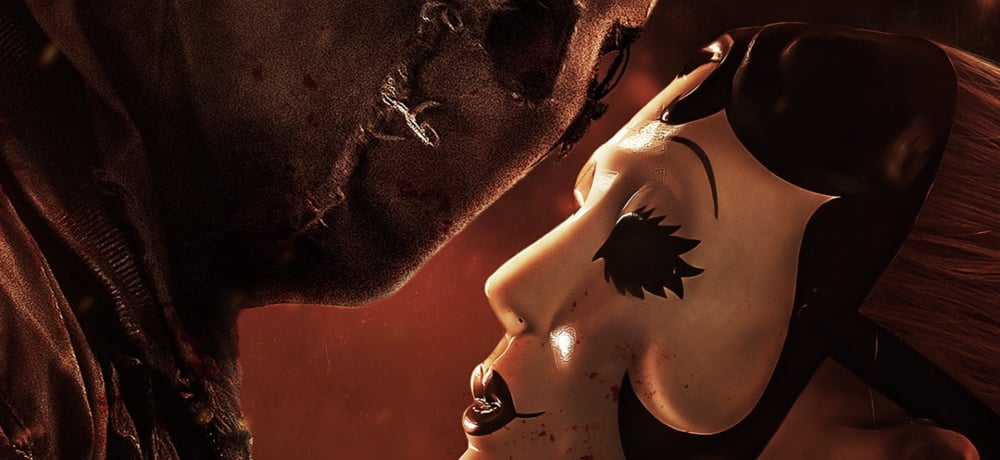






It’s the eyes, isn’t it? Wide like saucers and twice as deep, they’re impenetrable. And the wooden leer of the wide open maw betrays them, separate and with its own agenda. Of course I’m referring to ventriloquist dummies, and the eerie spell they cast upon the viewer. The horror viewer, specifically; we’ll seek out anything that gives us a sense of unease. Which brings us to Richard Attenborough’s Magic (1978), a wryly creepy tale of encroaching madness and showbiz folly. (Aren’t they the same thing?)
Produced by 20th Century Fox and Joseph E. Levine (Carnal Knowledge) and released by 20th Century, Magic opened in November of ’78 in the U.S. and rolled out to the rest of the world in early ’79. Grossing nearly $24 million U.S. against a $7 million budget with positive reviews to boot, Magic was an unqualified success – with one of the most notorious TV advertising campaigns ever.
And I know, because I witnessed it firsthand. The ad started with a one shot of the dummy from the film, Fats (voiced by lead Anthony Hopkins) reciting a poem:
Abracadabra, I sit on his knee
Presto, chango, and now he is me
Hocus, pocus, we take her to bed
Magic is fun – we’re dead.
As he ‘spoke’, the camera slowly zoomed in until all that was seen were his dead eyes, which panned left as the credits appeared on screen.
My reaction, being eight at the time? Abject terror, of course. I fled from the TV room, desperately needing to get away from this horrible thing spouting poetry about death in greasy proclamation. And as I’ve immersed myself in horror culture on the web, I’ve communicated with many people of the same vintage who may not remember the film, but remember that goddamn commercial. This thing traumatized so many kids that New York TV stations played it one time before they were inundated with calls from parents with kids like me, and pulled the ad. I wasn’t so fortunate up here in Canada. I remember sprinting from the room at least half a dozen times.
But being a nascent horror freak, I had to see it. And so, off I went with my parents to watch the film whose advertisement had me trembling with fear. (Yeah, they were cool like that.) So, did Magic measure up to the terrifying TV spot that traumatized a nation of kids? Nope – at least not at the time. This eight year old witnessed a weird drama punctuated by moments of intense violence, rather than a film about a malevolent wooden doll intent on murder, as I anticipated. I think because the ad had such an impact that anything short of Fats running around stabbing people and spouting limericks would have disappointed. But then again, Magic wasn’t intended for kids; there’s no way I could have grasped screenwriter William Goldman’s (Butch Cassidy & the Sundance Kid, Misery) intent as a child – a treatise on mental illness riding shotgun with the perils of stardom. As an adult? It’s all of these things and more – Magic displays a sly wit and intelligence that along with the aforementioned bursts of violence, is mesmerizing. Move over Chucky – Fats is ready for his close-up.
Corky Withers (Anthony Hopkins – Silence of the Lambs), a burgeoning magician, takes the stage for his first solo performance at an open mike night. Gifted as he is, Corky has zero stage presence, nor the confidence to develop one. As he recounts the event to his dying mentor Merlin (E.J. Andre – Papillon), we see Corky melt down and explode with rage upon the disinterested audience. Merlin tells him that he needs to find a way to grab their attention. Cut to a year later at the same club with standing room only. Why the sudden turn of events? Corky has become a ventriloquist magician, using Fats, his dummy, as a focal point to carry out his sleight of hand. Fats is saucy, funny, perceptive – everything that Corky needs to put his act across. He’s such a success that his agent, Ben Greene (Burgess Meredith – The Sentinel) has him fast tracked for a network pilot after a run on the talk show circuit.
Six months later, after attracting a lot of buzz, Corky is offered his network deal on one condition: he must take a medical exam for insurance purposes. Filled with fear and panic, Corky refuses and leaves incognito for the Catskills, where he was raised. Seeking solace from the pressures of Hollywood, he looks up his old high school crush, Peggy Ann Snow (Ann-Margret – Viva Las Vegas). Running a bed & breakfast and stuck in a loveless marriage to high school jock Duke (Ed Lauter – The Town That Dreaded Sundown), Peggy and Corky begin a romance while Duke is out of town. But sooner or later, Corky’s past will catch up with him – as will Duke. However, his biggest problem is this: how does he break it to Fats he wants to go solo?
Magic is certainly not the first horror film to delve into the eerie charm of ventriloquism – The Great Gabbo (’29), The Unholy Three (’30), and the dummy segment from Dead of Night (’45) being but a few of many – but explores the dynamic between puppeteer and puppet in the most fascinating way. Fats’ personality dominates because it’s the only way Corky can express himself; painfully shy at the start of the film, Corky’s pre fame outburst in the night club is a harbinger of things to come – he’s already starting to unravel, and then Fats comes along, steps on the string and won’t let up until Corky’s soul is laid bare. Clearly suffering from multiple personality disorder (I guess? I don’t even play a doctor on TV), Corky flees to the Catskills to try and normalize himself; he doesn’t fear success, he fears himself. Corky realizes early on what Fats is, but he has trouble controlling him – leading to conflict between himself and the two other vital characters – Ben and Peggy.
A lot of the humor comes from Burgess Meredith’s Ben. Modeled after legendary agent Swifty Lazar, Ben ‘The Postman’ Greene (“I always deliver.”) is one of my absolute favorite Meredith performances. Turning down the bluster into a sweet croon, he and Goldman have concocted a unique character: an agent who genuinely cares. One of the film’s pivotal scenes occurs when Ben tracks Corky to his cabin at Peggy’s. Ben knows something is wrong with Corky, and presents him with a challenge to test his mental health. The look on Ben’s face after it’s over is heartbreaking. Meredith won The Saturn Award for best supporting actor, and deservedly so. It’s a pity the Academy Awards weren’t paying attention – but that’s nothing new for our genre, is it?
Margret may have the tougher role though, as Peggy’s initial situation isn’t at odds with Corky’s, but rather runs adjacent. Peggy is a sad and lonely woman, barely living in a broken union; she hangs onto high school as the peak of her existence. While we can clearly see Corky’s cracked façade, Peggy sees a lifeline to a better time in her life, and desperately ties herself to Corky’s flickering star as a means of escape. The role was written for her, and it shows – playing to her strengths (honest sexuality, yes, but also a raw vulnerability that makes her even more appealing) she portrays Peggy as a woman willing to risk her life for happiness.
Director Richard Attenborough holds an interest to genre fans for his performances in Jurassic Park (’93) and its follow-up The Lost World (’97) as John Hammond (he spared no expense, don’t you know), but by the time of Magic he had been acting for decades, and directing since 1969 with his latest to this point being A Bridge Too Far (1977). He wasn’t the original choice to direct Magic; Norman Jewison was attached, and when he bailed Attenborough agreed to direct as long as he was given the go ahead to helm his passion project, Gandhi (’82). Known for directing sweeping, epic, large scale dramas (also see: Cry Freedom and Chaplin), Attenborough tackles the intimate here and the results are very effective. With only two settings to play with (the bed and breakfast and briefly, the city) he concentrates on the relationships between Corky and Peggy, and Corky and Ben. Of course Duke is involved, but is seen more as the reflection of Peggy’s disillusionment. There are not many scenes of suspense, but when they hit, they hit hard; DP Victor J. Kemper (Audrey Rose) and Attenborough conspire to keep audiences on edge as much as they can – notice how the further Corky plummets down his nightmarish rabbit hole, the more Fats shows up? Especially when not being used; he’s there in the foreground and in other scenes, the background. But his prominence grows, and he will not be ignored.
This is the film that really inured North American audiences to Anthony Hopkins. A Bridge Too Far and Audrey Rose (’77) increased his exposure, but Magic shone the spotlight. It’s a tour de force performance, and what actor wouldn’t want this challenge? Well, Jack Nicholson, for one – he was originally offered the role of Corky but balked when told he would have to wear a wig. He wouldn’t have been a good fit anyway – Hopkins is able to tap into Corky’s innate kindness and generate sympathy even during his mental descent, something that Nicholson was unable to convince me of later on in a film that was hardly overlooked.
And then there’s Fats; the source of my childhood terror, and the present recipient of my wary respect. Hopkins, working closely with master ventriloquist Dennis Alwood, brings Corky’s id to life through the timbered destiny that is Fats. Looking eerily like Hopkins (he made a frantic call to Alwood to have the dummy removed from his home while rehearsing), and sounding like a manic vaudevillian, Magic would not work if the audience didn’t (half way, at least) believe in the illusion of Fats’ sentience. But Attenborough and everyone involved ensure that the wires don’t show, and the lighting is just right. And while I can look back now at that commercial with a detached sense of bemusement, a little chill still trickles down my spine. I’m telling you, it’s the eyes.
Magic is available on Blu-ray from Dark Sky Films.
Next: Drive-In Dust Offs: DEMONS (1985)